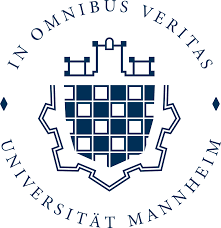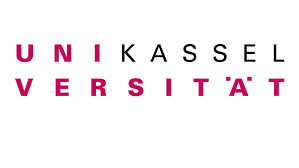Every university has its own admissions process, so it’s essential to review the specific requirements on the university’s website and ensure you are thoroughly prepared for your application.
MBA in Human Resource Management in Germany

Contents
Germany is becoming a popular choice for international students who want to do an MBA with a focus on Human Resource Management (HRM). With its high-quality education, strong economy, and plenty of tuition-free programs, Germany offers a great opportunity for students who are thinking about specializing in HR as part of their MBA. Imagine being the go-to person for hiring the next big talent at a top company—Germany can help you get there!
In this guide, we’ll walk you through everything you need to know about doing an MBA in HRM in Germany, including your options, what you need to apply, and more to help you take the next step in your HR career.
MBA in Human Resource Management Tuition-Free Courses
One of the most attractive aspects of studying in Germany is the availability of tuition-free MBA programs at public universities. These programs allow you to receive a top-tier education without the financial burden of high tuition fees.
- Public Universities: Most public universities in Germany offer tuition-free MBA programs, including those with human resources specialization. Students typically pay only a small semester fee ranging from €100 to €350, which covers administrative costs and public services like transportation.
- Living Costs: While tuition is often free, living expenses should be considered, typically ranging from €800 to €1,200 per month. This includes accommodation, food, Health Insurance, and other personal costs.
Admission Requirements for an MBA in Human Resource Management
Understanding the admission requirements is crucial for a smooth application process. Here’s what you need to know:
University Degree Requirements
- Bachelor's Degree: You must have a relevant bachelor's degree in management, business administration, or a related field. Depending on the focus of the HRM program, some programs may also accept degrees in psychology, sociology, or law.
- Grade Requirements: A strong academic record is essential. Most programs expect a minimum GPA equivalent to at least a "good" (2.5 on the German grading scale).
Language Requirements
- English Proficiency: For English-taught programs, you’ll need to provide TOEFL or IELTS scores. Many universities in Germany offer English-taught MBA programs, making them accessible to international students.
- German Proficiency: If your program is taught in German, you must demonstrate proficiency through tests like TestDaF or DSH.
Work Experience Requirements
- Relevant Experience: Most MBA programs in HRM prefer candidates with professional work experience, typically 2-5 years. This experience should ideally be in HR or related fields like management, recruitment, or organizational development. Internships and volunteer work in HR can also strengthen your application.
Remember
Application Deadlines for MBA in Human Resources
Here are the typical deadlines to be mindful of when starting your application process:
- Winter Semester: The primary intake for most programs, with deadlines usually from mid-December to late March.
- Summer Semester: A secondary intake with fewer programs available. Deadlines generally fall between mid-May and late September.
- Check Specific Dates: Always verify the specific application deadlines for each university, as they can vary. Early application is recommended to secure your spot, especially if you’re applying from abroad.
🎓 Not sure HRM is the right path? Explore other business-related programs that match your career goals and interests or visit our Study in Germany resource hub for everything from admission advice to life after graduation.
English-Taught HR Programs in Germany
Alternative Degree Options for HRM Students
If you’re interested in expanding your career options beyond traditional HRM roles, consider these alternative degrees:
Business Administration Degrees
Business administration offers a broader understanding of business operations and the option to specialize in HRM, providing flexibility in career choices.
Labor and Employment Relations Degrees
Specializes in labor laws, employee rights, and industrial relations, preparing you for roles in legal consultancy, labor negotiations, and HR compliance.FAQs
Is Germany good for an MBA in Human Resource Management?
Yes, Germany is an excellent choice for an MBA in HRM due to its strong educational institutions, global business environment, and the availability of tuition-free programs at public universities.
Is HR in demand in Germany?
Yes, Human Resources (HR) are in demand in Germany, particularly in sectors like technology, manufacturing, and finance. As companies increasingly focus on talent management, organizational development, and labor law compliance, skilled HR professionals are highly sought after. The growing emphasis on diversity, digital transformation, and employee well-being also drives the demand for HR experts.
Is getting a job in Germany easy after an MBA in HRM?
Yes, securing a job in Germany is generally feasible after completing an MBA in Human Resource Management, especially if you have relevant work experience and proficiency in German. The job market is strong for HR professionals, particularly in multinational companies and industries that value strategic HR expertise. Fluency in German can significantly improve your job prospects, as it allows you to engage more effectively with local employees and navigate the German labor market.
This might also be of interest to you

Summer Semester in Germany: Your Complete Guide for April 2026 Intake
Thinking about studying in Germany but missed the October deadline? The summer semester might be your perfect opportunity. While most international...

Why More Indian Students Are Choosing Germany Over the USA
In the last decade, Germany has become one of the fastest-growing study destinations for Indian students. While the USA once dominated the dreams of...

Top Courses for Indian Students in Germany vs USA (2025 Guide)
Studying abroad is a dream for many Indian students, but choosing the right country and course can be confusing. The United States and Germany are...

Germany vs USA: Work After Study Options for Indian Students (2025 Guide)
When you're choosing where to study abroad, it's not just about the university name or the country hype. For many Indian students, the big question...

5 Cheapest Countries to Study Abroad for Indian Students (2026 Guide)
Studying abroad doesn't have to drain ₹40-60 lakhs from your family's savings. Five countries offer world-class education for under ₹10 lakhs per...

Germany vs USA: Which Is Better for Indian Students in 2025?
Choosing where to study abroad is a big deal, especially for Indian students. You're not just picking a country; you're deciding to move far from...

Germany Welcomes Displaced Harvard Students: A New Academic Home
In a move that’s left thousands of students in shock, the U.S. government has revoked Harvard University’s certification to enroll international...










